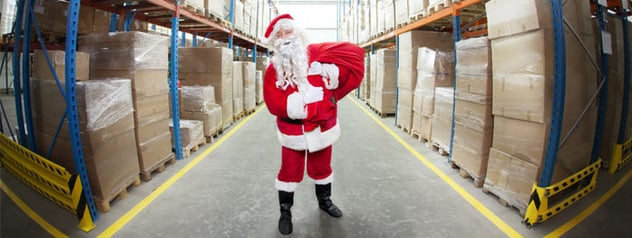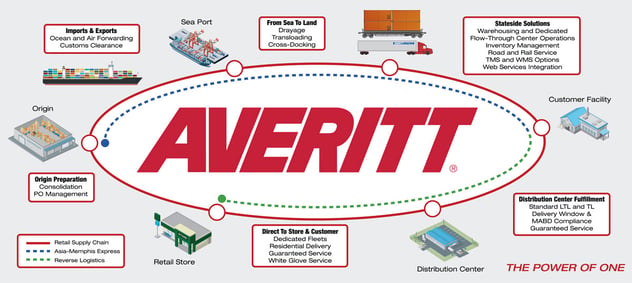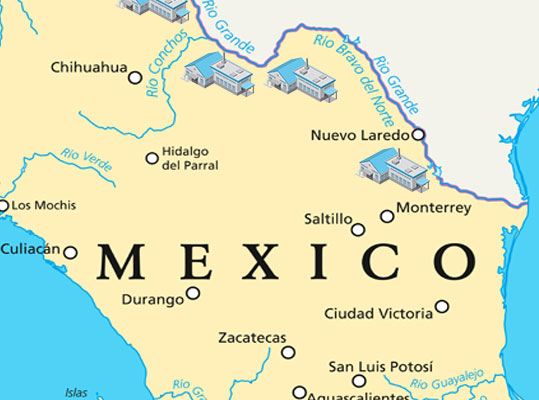
We're in the homestretch of 2016, and that can mean only one thing for retailers: the holiday season is about to begin! Undoubtedly one of the busiest times of the year, retail shippers have a lot on their plates to deal with.
From hiring seasonal help to setting up Halloween and Christmas displays, the last thing you should worry about is whether or not a delivery of high-demand products will arrive on time or not. To help you get a leg up on this and future peak seasons, we've put together several supply chain practices that can help you survive the holidays with ease.
1) Strategize Peak Supply chain Needs Early On
Planning ahead is the most important step you can take to prepare your retail business for the holidays. When it comes to your retail supply chain, you will want to begin strategizing months in advance.
This is particularly true for business owners that import from overseas suppliers and manufacturers. The deliverable time on a purchase order from China, for example, can take several weeks or longer during peak seasons.
At the same time, foreign suppliers are also stretched thin as production is increased to meet the retail demand abroad. To ensure that your shelves will be stocked on Black Friday and other peak times, you'll need to coordinate with your manufacturers, suppliers and transportation providers. Keeping all parties working in tandem will become an issue if you wait until the last minute.
#ShipperProTip: Map out the supply chain of your business and make note of the deliverable times for each segment. Use the illustration below to help visualize what your retail supply chain looks like from origin to final delivery.
2) Make Notes Year To Year
Learn from your past mistakes, as well as your past successes. Find time throughout the workweek to jot down what went wrong and what went right with your inventory and transportation practices. Rather than taking up shelf space, perhaps you have products that would be best suited in a nearby warehouse that can be picked up or delivered as needed.
When it comes to transportation, make note of:
- Best time of day for your carrier to make a delivery
- Required accessorial services (liftgate, off-hour or inside delivery, etc.)
- Which type of shipments require expedited delivery
3) Take Advantage of Technology
There's a world of data and great tools that are your fingertips. Stay ahead of the curve and take advantage of your transportation provider's technology. For example, many carriers offer shipment tracking and instant notification services that allow you to know when and where a shipment is in transit.
If you store a large amount of inventory or utilize a warehouse, you can incorporate a warehouse management system into your supply chain for greater control. There are many benefits to using a WMS within the retail industry, including optimizing stock levels for peak seasons and improving purchase order strategies.
#ShipperProTip: Read more about the benefits of a WMS in our post: "5 Ways A Warehouse Management System Can Improve Your Supply Chain"
4) EXAMINE YOUR CURRENT RETAIL SUPPLY CHAIN STRATEGY
Many retailers are still struggling to figure out how to compete against online marketplaces that can offer quick turnaround on deliveries. Many independent retailers are turning to an omnichannel approach. Omnichannel retailers sell products across various channels and via different media, including in stores, through their website and on retail marketplaces such as Etsy and Amazon.
If you're a retailer that is incorporating online sales tactics into your business, you may also want to think about the future of your transportation strategy. If you're moving a fair amount of products through online sales, it may make sense to outsource your fulfillment needs in order to free up space and resources at your physical locations.
Order fulfillment can be demanding, especially for retailers that sell their goods through online marketplaces. Many marketplaces have strict delivery windows and guidelines that must be met in order to avoid being charged non-compliance fines.
#ProShipperTip: Learn how e-commerce retailer Fishers Finery is able to focus on business growth rather than supply chain management.
5) Communicate With Your Transportation Provider
Ultimately, your success during the holidays will rely on you and your service providers' ability to communicate with each other. When it comes to deliveries, you or an employee will need to be able to sign off with the driver. If someone from your team that handles shipping has taken the day off, you'll need to make sure there is a backup person in place or that you've notified your carrier of any alternative delivery plans.
Carriers and capacity are in high demand leading up to and during the holidays, so it's crucial that you give your carrier as much early notice of pickup and delivery needs as possible.









